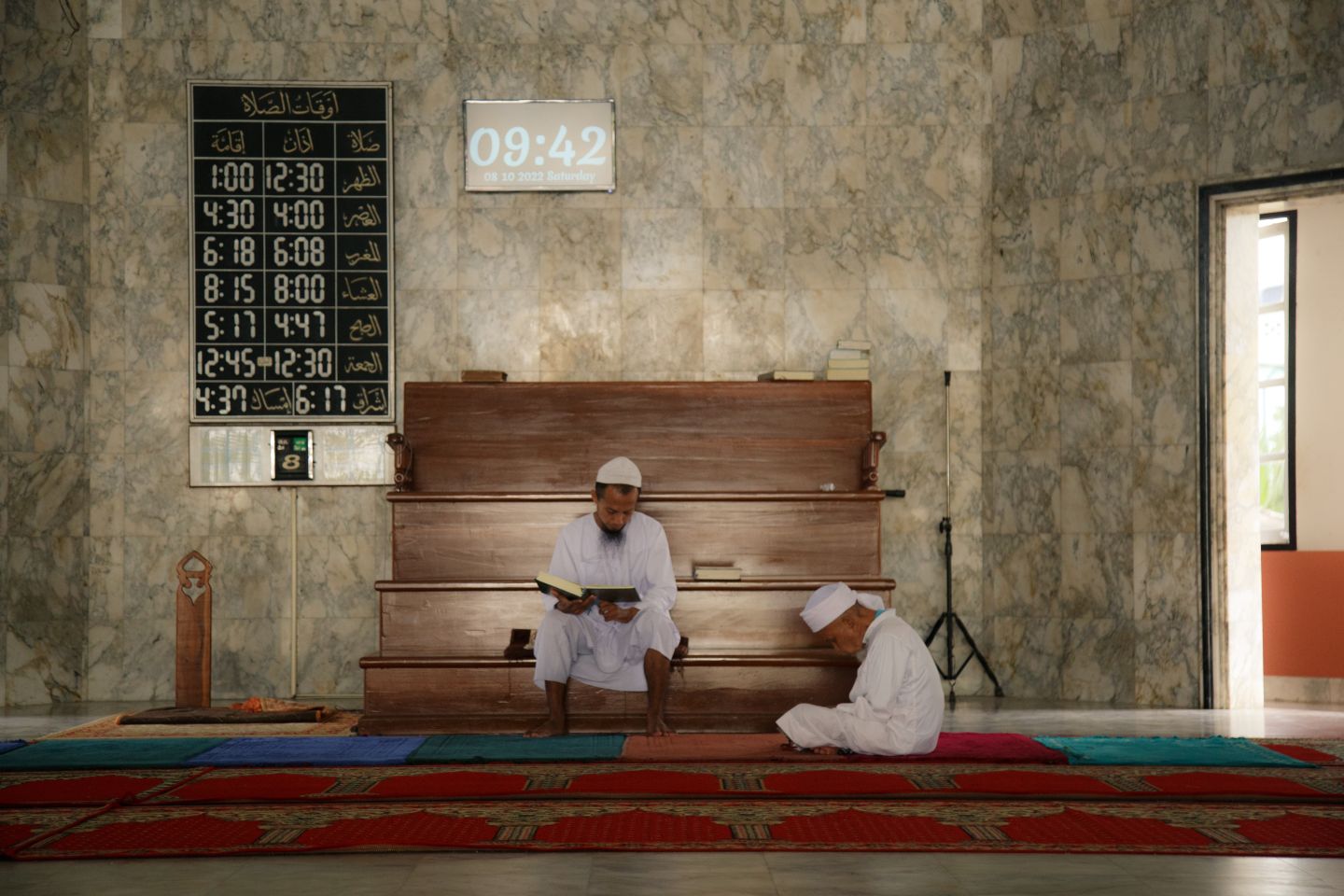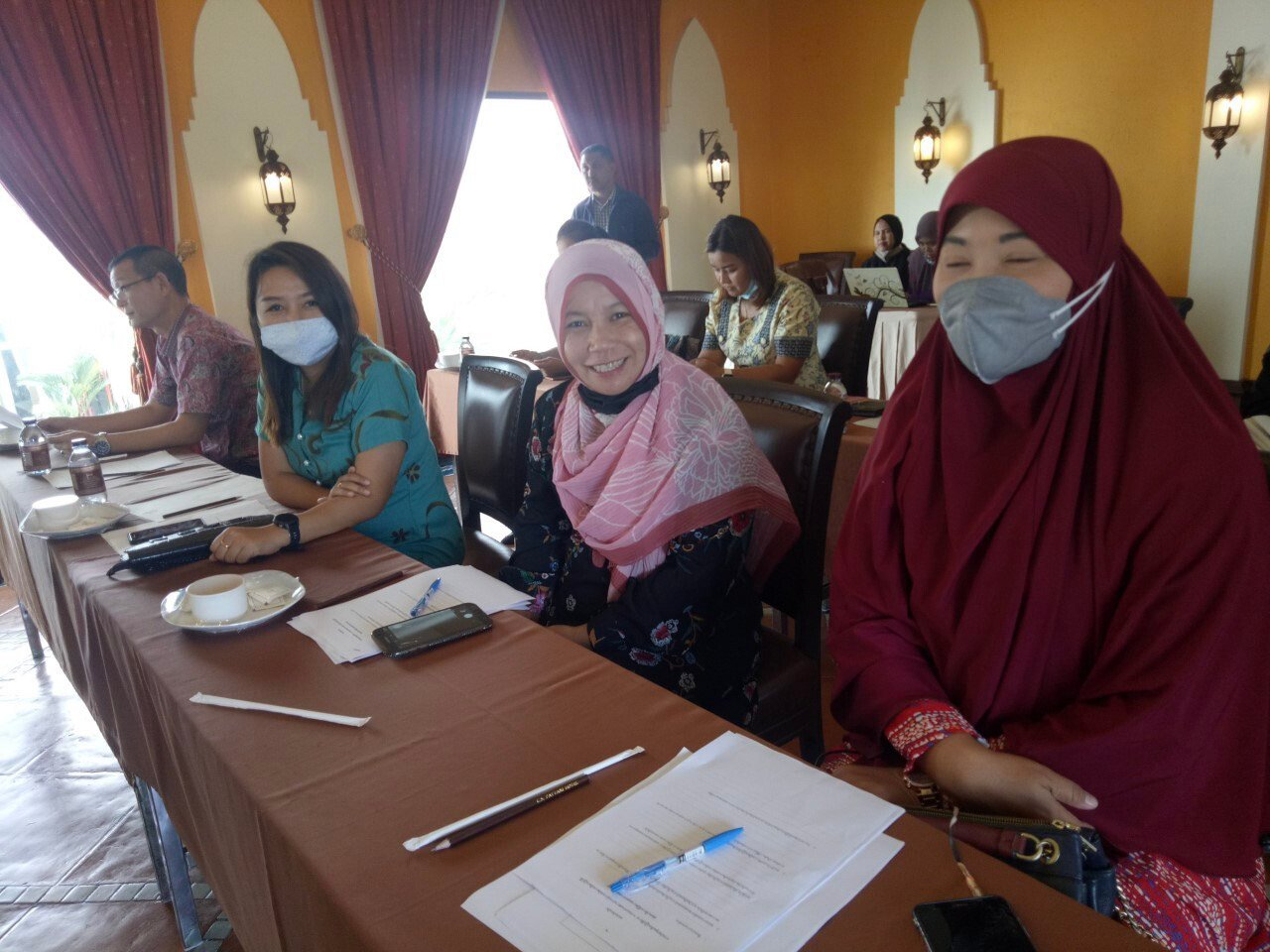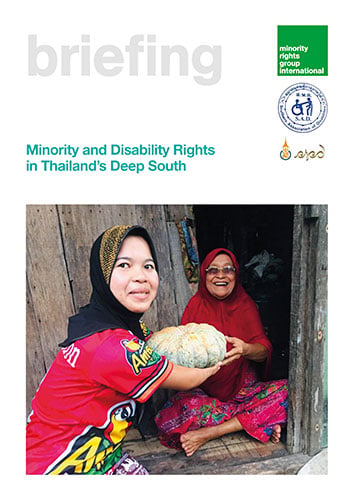
Call for Expressions of Interest: Thailand programme evaluator
We are no longer accepting applications for this opportunity.
Click here to see all open opportunities.
Title
Call for Expressions of Interest: Thailand programme evaluator
Terms of Reference and Call for Expressions of Interest: Final Evaluation of Inclusive Peacebuilding in Thailand’s Southern Border Provinces.
Deadline for applications: 25/10/2024 at 17:00 GMT
1. Project background information
Duration: 1 February 2022 – 31 January 2025
Country: Thailand
Communities: Marginalized communities in the Southern Border Provinces, broadly referring to the Patani Muslim community and specific groups within the community—women, widows, women with disabilities, persons with disabilities, religious and ethnic minorities such as Buddhists and Chinese, LGBT+, youth, rural persons.
This European Union-funded programme aims to realize the full protection of the rights of marginalized communities in Thailand’s Southern Border Provinces by strengthening their inclusion in peace processes so that they can claim their rights throughout the process and afterwards in transition to a peaceful society. We support in-country civil society actors and their initiatives designed to prevent conflicts, respond to crises and build trust and confidence across conflict divides. More precisely we:
- Create networks of communities and community leaders that are knowledgeable about peace processes, able to facilitate resolution of conflict, and empowered to design and implement projects in their communities according to their understandings of peace.
- Provide participatory research training, build advocacy skills, provide opportunities to engage key decision makers, strengthen network-building activities, build the role of marginalized groups in peace processes, and amplify the experience of women peace advocates.
- Engage in sustained advocacy and lobbying with local, national and international influential stakeholders, providing key opportunities for awareness raising, familiarization with relevant qualitative and quantitative data, and challenges to engrained discrimination.
- Build the capacity of civil society organizations (CSOs) to design, implement and monitor their own projects through sub grants, enable peaceful advocacy for their rights, increase solidarity in civil society and bring grassroots persons into a broader movement for peace
Partners:
- Prince of Songkla University – Institute for Peace Studies (IPS)
- Kampong Taqwa Association (KTA)
The overall and specific objectives were as follows:
Overall objective: To realise the full protection of the rights of marginalised communities in Thailand’s Southern Border Provinces.
Specific objective: To strengthen the inclusion of marginalised communities in processes of peace in Thailand’s Southern Border Provinces.
The project’s three results were as follows:
- Increased capacity of marginalised communities to participate in peace processes, research & document ongoing challenges and influence related policies and practices.
- Increased trust and confidence among and across communities & CSOs leading to renewed co-operation, dialogue and mutual understanding.
- Increased awareness and engagement of local, national and international influential stakeholders in the rights of marginalised communities in the Southern Border Provinces and their importance for a secure and lasting peace.
2. Purpose and users of the evaluation
2.1 Purpose
The purpose of this evaluation is to assess the scope and depth of the project’s results against its stated objectives; its effective implementation; the sustainability of its impact and new insights and learning to strengthen future project interventions by partners. The final evaluation will also be shared with the project’s donor as part of its final reporting obligations and will form an important part of the partner’s transparency with regards to their respective stakeholders.
2.2 Intended users and uses
The evaluation will be used by the project donor as a secondary means of verification of the project’s reported results; It will be used by project partners for learning and strengthening their own project management and strategy for intervention; it will support future project design and follow up to the current intervention; it will provide feedback and transparency on the overall project to stakeholders, including local partners, decision makers and other actors engaged in the implementation.
3. Scope of the evaluation
The scope of the evaluation should encompass a relevant cross-section of the project’s activities, necessary to effectively assessing its achievements against its original logframe objectives and outputs. In order to achieve this, it should select a range of activities to assess from local, national and international targeted activities and a cross section of the project’s results.
The evaluation will encompass results and outputs achieved during the implementation period, but can also provide guidance and insight into potential long term impacts that could follow the project’s completion (January 31st 2025)
4. Evaluation objectives, criteria, and questions
- To assess the project against its stated objectives and results (logframe) and intervention logic
- To provide co-implementing partners with an opportunity for learning from design and implementation process and guidance on opportunities for sustainability of the project
- To develop recommendations for stakeholders, including the donor, implementing partners, local partners, decision makers and other interested actors working in the field
Evaluation criteria
- Relevance (i.e., How well has the intervention responded to local needs? To what extent did the intervention benefit all target groups equally?)
- Effectiveness (i.e., Has the intervention achieved its outcomes and outputs? To what extent and how were the constraints foreseen and overcome? What unintended outcomes were achieved?)
- Efficiency (i.e., How well were the resources used? How well was the program budgeted for? What internal and external factors contributed to and/or hindered implementation efficiency?)
- Impact (i.e., What broad changes has the intervention contributed to generate?)
- Sustainability and participation (i.e., Will the benefits last? How effective were the exit strategies? To what extent did target groups and communities participate in the design, delivery, monitoring and evaluation of the program? Did the intervention receive buy-in from the authorities?)
- Project design and delivery (i.e., Were all the activities delivered as planned? Was the Theory of Change valid and/or the Logframe solid?)
- Causality/Contribution/Correlation (i.e., To what extent has the intervention contributed to the results?)
- Partnerships (i.e., What partnership relationships have developed between MRG and the partners and amongst the partners? How successful were they?)
- Donor-specified and MRG cross-cutting results (i.e., Did the intervention contribute to promote gender equality? Was a human rights-based approach used?)
- Inclusion (i.e., Did the intervention benefit all the relevant groups – e.g. young people, persons with disabilities.)
- Learning and recommendations (i.e., What are the main learned lessons and best practices from the program?)
Key Evaluation Questions
- To what extent did the intervention produce the intended results/changes in the short, medium, and long term? If so, for whom and in what circumstances?
- How well has the project responded to the local context/needs? How valuable were the results to rights holders, service providers, clients, communities, and/or organisations involved?
- To what extent were the results due to the intervention rather than something else?
- How has the intervention mainstreamed cross-cutting issues?
- Are any positive results likely to be sustained? In what circumstances?
The evaluator(s) is expected to ensure compliance with donor’s evaluation criteria, the EU ‘Better Regulation toolbox’, (pp. 404-414). The full EU policy ‘Evaluation matters’ is available here. For a technical overview and introduction to the EU evaluation process and methodology, please see ‘Methodological bases for evaluation vol. 1’.
5. The principles that will guide the evaluation
The evaluation should be guided by the principles of transparency, partnership and openness and take into careful consideration the situation of the project stakeholders whom the evaluator will target. Gender and cultural sensitivity therefore are essential to both the planned methodology and effective conduct of the evaluation, particular attention should be paid to ensure approaches that are inclusive of persons with disabilities, who are one of the project’s key stakeholder groups.
Data should be disaggregated by both gender and disability and ethical procedures in data collection and storage of information should be applied. The evaluator will need to provide a declaration of conflict of interest.
The evaluator should also consider security concerns that may arise during the conduct of the evaluation, not just for themselves but for stakeholders and interviewees. These should be addressed in any evaluation methodology.
6. Key deliverables
- Inception report and attached mandatory Annexes in English language
- Final Evaluation report (15-20 pages, excluding annexes), including an Executive Summary (2 pages) in an accessible, easy-to-read format in English language. The final evaluation report will be full and detailed for internal use and for submission to the donors, and will include lessons learned, recommendations, and suggestions for dissemination and utilization of findings.
- A public facing document to be uploaded on MRG’s website in which key identifiers of individuals, organizations and locations will be removed where inclusion in a public document may result in additional security risks, which will be supplied in both English and Thai.
7. Key tasks
Based on MRG’s prior experience, we anticipate that the following tasks may be needed, but we are open to suggestions for alternative methodologies:
- Read all project materials and review feedback from project partners (including notes of meetings, publications, reports of campaigns, media coverage, training evaluations, capacity assessments, email correspondence, baseline and monitoring reports).
- Hold detailed discussions regarding project implementation, results and impact with staff from each partner and sub-grantees.
- Visit project locations and speak to community members, local staff and officials. Visits should be arranged independently and should not rely on project staff, nor should project staff be present.
- Independently identify and get opinions from at least 3 additional experts/well informed sources.
- Please note: the evaluator is tasked with handling issues related to security, weather conditions, logistical challenges, limited access to resources, to obtaining permits to conduct research, and other relevant matters.
8. Evaluator(s) qualification and expertise required
Required
- Extensive knowledge and proven experience of working on human rights, gender, NGO capacity building, including knowledge of relevant debates and international standards.
- Experience of comparable evaluations and strong track record of evaluations carried out on civil society projects targeting communities facing serious levels of marginalisation and exclusion
- Evidence of the ability to develop interview and evidence gathering approaches for a wide range of stakeholders appropriate to the project ( see above sections).
- Evidence of the ability to develop online and in person interview and evidence gathering approaches are inclusive of persons with disabilities
- Ability to speak, read and write English fluently. Ability to cover provision for Thai language interviews will be required.
- Experience evaluating projects in conflict or post-conflict zones.
- The evaluator will need to be independent of MRG, its donors, partners, the project targets and participants, and will need to state and demonstrate that no perceived or actual conflict of interests will arise during the evaluation.
- The evaluation team will all need to be able to demonstrate the ability to gain the trust of the partner organizations, individuals and the minority communities targeted in this project.
Desirable
- Extensive knowledge and proven experience of working on human rights, peace building, inclusive development, minority and indigenous rights and the rights of persons with disabilities.
- Good knowledge of Thailand’s political, social, legal, media context, particularly with regards to the situation of historically marginalized communities.
- Experience in engaging with any of the project’s key international stakeholders, such as UN agencies.
- Experience of carrying out or evaluating training, capacity building, influencing local govt decision making, if possible influencing budgets, advocacy and work with smaller NGOs in difficult contexts.
- Ability to speak, read in Thai.
9. Budget
The available budget for the evaluation is 7,000 Euro. The proposed budget cannot exceed this amount.
Candidates must supply a detailed estimation of the total cost of the evaluation.
Some budget headings to consider in the evaluation budget are:
- Personnel (e.g., evaluator(s), research assistant, support staff) per day or lump sum – if lump sum, the number of workdays will be agreed with MRG and reflected in the work plan and budget.
- Travel (e.g., transportation, per diem, travel mobilization expenses, class of travel)
- Supplies, equipment and direct communication costs such as phone, fax, email, internet, postage
- Translation
- Copying and printing
- Workshops, FGDs, and other data collection costs (i.e., design, verification, utilization)
- Facilitation of use by intended users.
10. Timeframe and Submission
- The inception report needs to be submitted within 1 month of contract signature.
- The evaluation field work needs to be carried out between 01/01/25 and 01/31/25
- Preliminary findings need to be submitted by 15/02/25
- Draft evaluation needs to be submitted by 28/02/25
- MRG and partners will submit comments within 5 working days.
- The final evaluation report responding to all comments in English needs to be submitted by 15/03/25
- The public facing document needs to be submitted to MRG in both English and Thai by 15/03/25
If you are interested, please apply submitting the following by 18/10/2024 at 17:00 GMT to [email protected]
- Team members’ CVs (max 2 pages per person)
- Cover letter setting out how the evaluator team meets the requirements specified in Section 8.
- Brief statement (8 pages) including: evaluation approach and methodology, data collection strategy, data analysis plan, workplan, team composition, and budget.
- Examples of, or links to, evaluations completed by the team members with similar elements
In case of any questions, please contact [email protected]
Featured image: Men read the Qur’an at a mosque in Yala, Thailand. Credit: Muhammadfaton Mateh.




